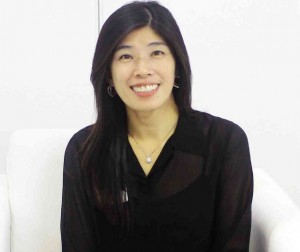Green builders have taken a step further in walking the “sustainability” talk.
Even with a warm weather of 31 degrees Celsius outside the Sands Expo and Convention Centre in Marina Bay Sands in Singapore, exhibitors and visitors alike did not feel the heat inside the venue of this year’s Build Eco Xpo (BEX) Asia and International Green Building Conference (IGBC),-mainly thanks to their casual attires and green practices carried all throughout the three-day event, from Sept. 1 to 3.
On its seventh year, Reed Exhibitions general manager Michelle Lim said BEX Asia had a more conducive environment this year because of the “no-coat, no-tie” dress code for them to feel comfortable while in-hall temperatures are raised to an environment-friendly level. In addition, the LED lights installed in each booth gave the “cooling effect” to the shell-scheme exhibition.
“Temperature-wise, the hall and conferences are set in 25 degree Celsius, where normally it would be on 23 or lower,” Lim said. “That’s why we encouraged people not to have coats.”
Eco-friendly
Aside from these, organizers reused materials from last year and chose flash-drives for brochures and press kits instead of printing on papers. They also had a donation drive for visitors who wanted to give their T-shirts that will be made into bags.
“Visitors are an important part of our show and it is necessary to engage them in our efforts,” said Louise Chua, Reed business development director.
Compared from year 2013, BEX Asia gained an 8-percent increase or 9,755 in the total number of visitors this year. It has remained to be Southeast Asia’s largest business platform for the green building and construction industry, gathering international green building solution providers and leading industry players in one location.
“We are happy to share that BEX Asia concluded with more than US $110 million expected in transactions,” Chua said. Over 200 business meetings were also set up to facilitate partnerships between the exhibitors and visitors.
Lim said the number of participating companies have grown from 310 to 415 from 35 countries including Australia, Canada, China, Hong Kong, Korea, Malaysia, United States, and United Kingdom.
“There were seven international exhibitors, with the continued support from the Japan External Trade Organization (Jetro) and Taiwan Plastics Industry Association (TPIA) which have expanded in terms of size … a gross of 8,000 square meters,” she said.
BEX Asia also created the “Greenview,” an industry forum with 25 think-tanks to talk about technical topics to support the IGBC.
Notable speakers
Some of the notable speakers and topics discussed for Greenview were Atelier Ten director Naree Phinyawatana from Bangkok, Thailand, daylighting; Tian Building Engineering CEO Alex Lee from Germany, performance simulation technology for green buildings; Light Cibles CEO Emmanuel Clair, lighting, and Greenology managing director Veera Sekaran, vertical urban gardening.
“I would say that we have been an effective platform bringing together buyers and sellers, be it international to Asia region,” Lim said. “We are able to bring value to the industry, to businesses … and these experts from across the world have the chance to share their best practices and case studies which enhance the technical bits of things.”
Chua, meanwhile, said BEX Asia if gearing up for a better show in 2015 especially with the inclusion of the inaugural Mostra Convegno Expocomfort (MCE) Asia. Mostra Asia will be Singapore’s counterpart of the Reed Italy exhibition on HVAC (heating, ventilation, and air-conditioning industry) and will colocate with BEX Asia next year.
“Throughout the years, we see more and more products [for different] areas of the building have focused on going green … from flooring to roofing. And aside from being green, some companies even make it look better with the design that comes with it,” Lim said.
Currently, Singapore has 25 percent green buildings but is targeting to have 80 percent by year 2030. Chua said it would not be difficult to achieve since the cost of going green has dropped down significantly for these solutions.
“The challenge is to engage existing buildings to go green, as to why they have to change. I supposed the industry is embracing because there is a demand and supply here, more buildings asking for it and more brands providing,” Chua said. “Green is not new but there is still a lot of engagement we need to continue.”
The IGBC and BEX Asia 2014 are part of the Singapore Green Building Week which ran until Sept. 7.
